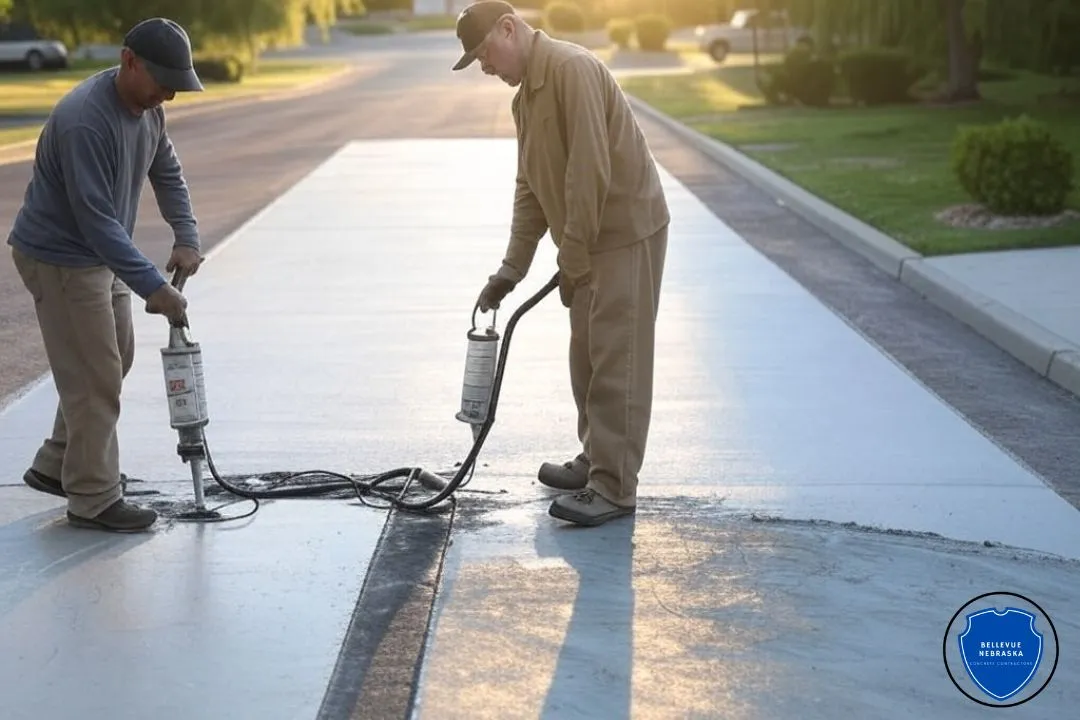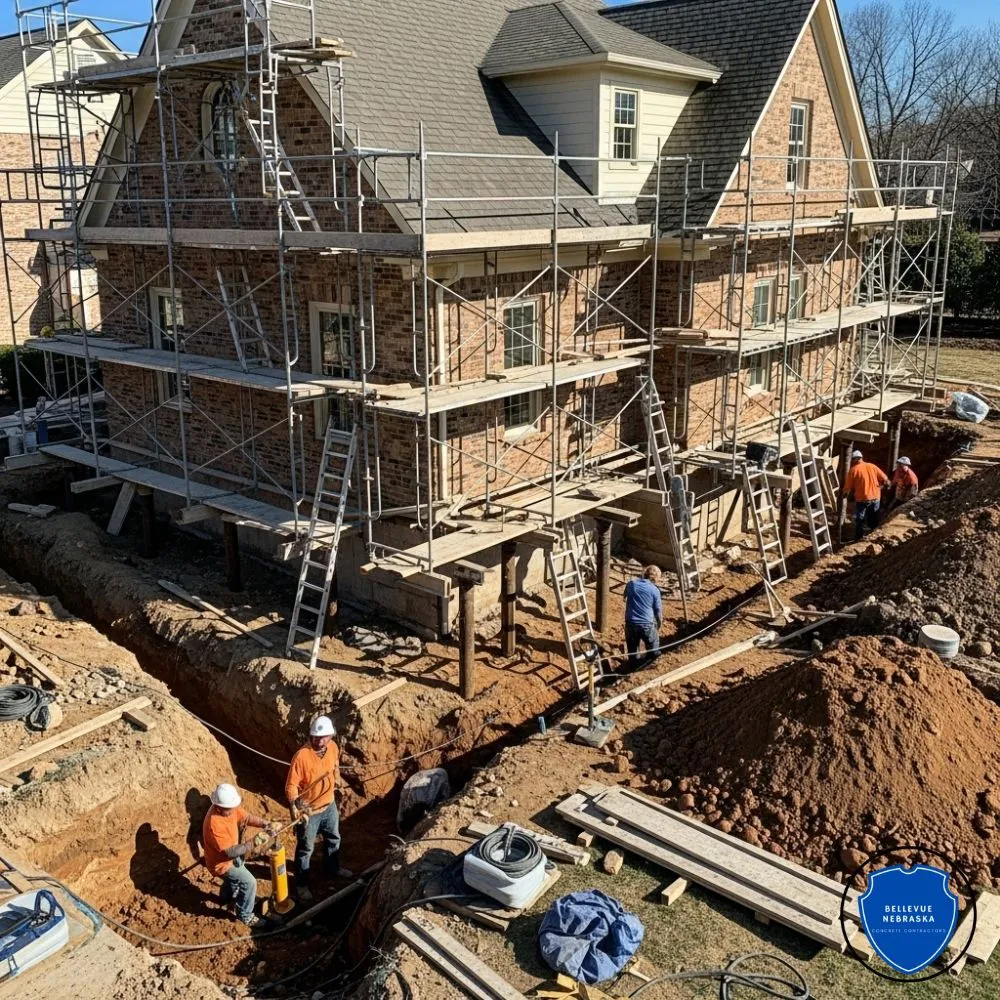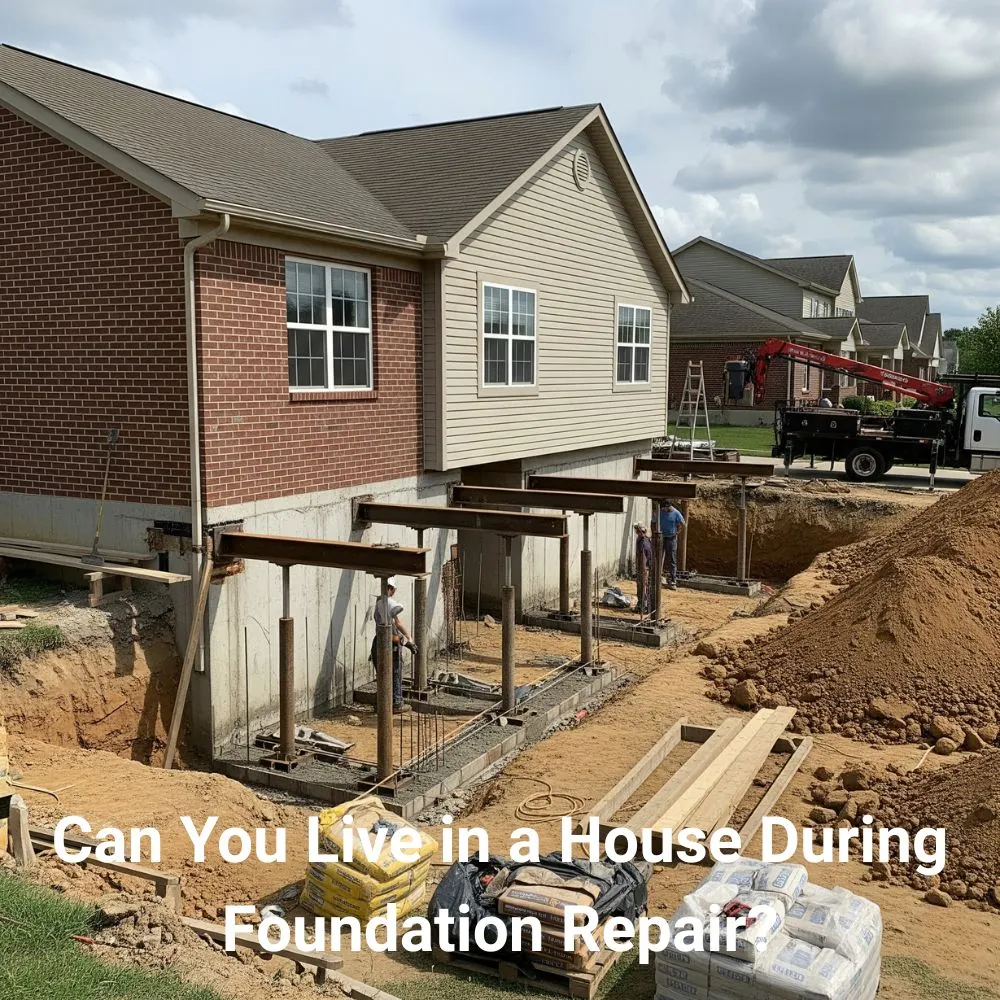Sealing a concrete driveway is necessary to protect it from damage and extend its lifespan. Unsealed concrete is more vulnerable to water, stains, cracks, and wear from daily use. While it’s not mandatory, sealing helps keep your driveway in the best shape for years.
This article explains what happens if you don’t seal your driveway and how often you should do it. We’ll also cover key factors to consider and the benefits of sealing.
What Happens If You Don’t Seal a Concrete Driveway?
Your driveway will wear down faster without proper protection, as discussed below. The damage may require costly repairs or even complete replacement.
Water Damage and Cracking
Concrete is naturally porous, meaning water can seep in. In colder climates, trapped water freezes and expands, causing cracks in the concrete driveway. Over time, repeated freeze-thaw cycles weaken the structure, making the surface brittle and prone to breakage. Water can erode the surface even in warmer regions, leading to pitting and rough patches.
Stains from Oil, Grease, and Chemicals
Unsealed concrete absorbs spills, making stain removal challenging. Oil, grease, and de-icing salts can penetrate the surface, leaving permanent marks. Once stains set in, they are nearly impossible to clean, making your driveway look worn and neglected. Chemicals from fertilizers and cleaning agents can also weaken the concrete over time.
Surface Erosion and Wear
Rain, snow, and daily vehicle traffic gradually wear down the surface, leading to rough patches, small holes, and cracks. The more exposed the concrete is, the faster it deteriorates. Heavy vehicles and frequent use accelerate this damage, making the driveway look uneven and aged.
Fading and Discoloration
UV rays from the sun cause unsealed concrete to fade over time. The surface may develop a dull, chalky appearance. Sealing protects against sun damage and helps maintain the driveway’s original color and texture.
Increased Maintenance and Repair Costs
An unsealed driveway requires frequent cleaning to prevent stains from setting in. Cracks and surface damage will need regular patching, which can be expensive. Over time, neglected damage can lead to costly repairs or complete driveway replacement.
When and How Often Should You Seal a Concrete Driveway?
Sealing your concrete driveway at the right time helps protect it from damage. A new driveway should be sealed after fully curing, which usually takes 28 days. Sealing too soon can trap moisture and weaken the concrete.
Once sealed, your driveway will need resealing every 2 to 5 years. The exact timing depends on weather conditions, how often the driveway is used, and the type of sealant applied. Driveways in harsh climates or high-traffic areas may need sealing more often.
Factors to Consider When Deciding To Seal The Driveway
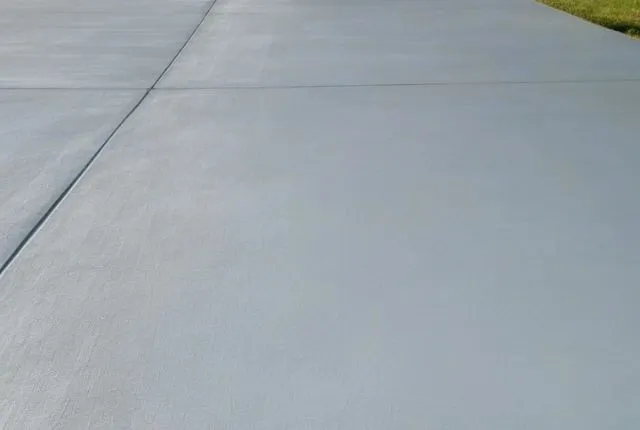
These factors determine how often concrete sealing is needed and how effective it will be.
Climate
Weather plays a significant role in concrete durability. In colder regions, freezing temperatures cause water inside the concrete to expand, leading to cracks. Sealing helps prevent water from seeping in and causing damage.
The sun can dry out in hot climates and weaken the surface over time. UV rays also cause fading and discoloration. A suitable sealant protects and keeps the driveway looking new.
Driveway Usage and Exposure to Chemicals
A driveway that gets heavy use will wear out faster. The concrete will face more stress if you park multiple vehicles or have heavy machinery. Frequent traffic can lead to cracks, surface erosion, and fading.
Exposure to chemicals like oil, gasoline, and de-icing salts also affects concrete. These substances can stain and weaken the surface. Sealing helps create a protective barrier, making cleanup easier and preventing long-term damage.
Quality of Initial Concrete Mix
The strength of the concrete depends on the mix used during installation. High-quality concrete with the proper cement, water, and aggregate proportion will last longer. Poor-quality concrete may crack or erode faster, making sealing even more critical.
Condition of the Driveway
Before sealing, check the condition of the concrete. If there are cracks, chips, or stains, repairs should be made first. Sealing over damaged concrete won’t fix the problem—it only protects what’s already there.
Benefits Of Sealing Your Concrete Driveway
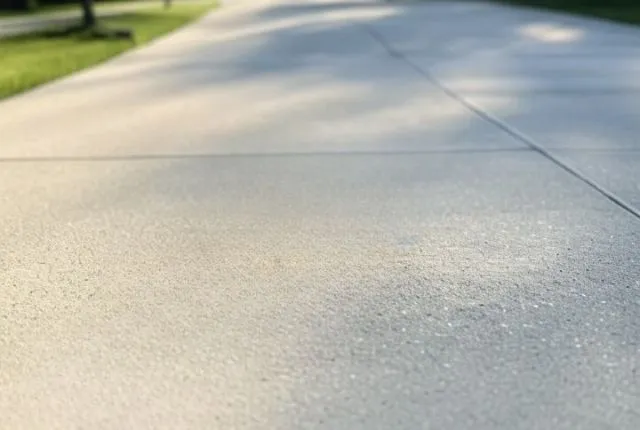
Sealing your concrete driveway is one of the best ways to protect it from damage. According to our experts at BellevueNebraskaConcreteContractors here are the key benefits of sealing.
Improves Temperature Resistance
Concrete driveways are exposed to extreme temperatures, which can cause damage over time. The concrete can expand and contract without sealing due to heat and cold. This leads to cracks and surface damage.
You can create a barrier by sealing the driveway. It helps maintain a more stable temperature within the concrete, reducing the risk of temperature-induced cracks and damage, especially in areas with extreme weather changes.
Adds a Glossy Finish
Sealing your driveway enhances its appearance by adding a glossy finish. This not only makes your driveway look clean and polished but also helps bring out the natural color of the concrete.
A shiny surface makes the driveway more attractive and adds a touch of curb appeal to your home. The glossy finish also helps to reflect light, making the driveway look brighter and newer for a longer time.
Resists Mold and Mildew
Mold and mildew thrive in damp, untreated surfaces. Unsealed concrete driveways can become breeding grounds for mold and mildew growth, especially in humid or rainy climates. Sealing your driveway reduces the moisture absorption of the concrete.
This prevents mold and mildew from taking root. This keeps your driveway looking cleaner and helps maintain a healthier home environment.
Enhances Curb Appeal
The condition of your driveway plays a significant role in the overall appearance of your home. An unsealed driveway can become cracked, stained, and discolored, affecting your home’s curb appeal. Sealing your driveway enhances its color and texture, giving it a fresh, clean look.
A well-maintained driveway can increase the attractiveness of your home. This is important if you plan to sell or want to improve the look of your property. A sealed driveway can make a significant difference in people’s first impression of your home.
Easier to Clean
Concrete driveways can quickly accumulate dirt, oil, grease, and other stains. Sealing the driveway creates a smooth, protective layer that prevents stains from penetrating. This makes it much easier to clean the surface with just a simple sweep or a hose down.
Oil and dirt can be wiped away more efficiently, saving you time and effort on maintenance. The more straightforward cleaning process also helps keep your driveway looking fresh and new for longer.
Conclusion
Sealing your concrete driveway is a smart choice for maintaining its appearance and durability. It protects against water damage, stains, and cracks. Sealing also enhances curb appeal and makes cleaning easier. With proper maintenance, a sealed driveway will last longer.
Look no further if you’re looking for reliable and high-quality concrete services. We specialize in providing expert concrete solutions for both residential and commercial needs. Our team is committed to exceptional craftsmanship and customer satisfaction.
Frequently Asked Questions
1. How often should I reseal my concrete driveway?
Most concrete driveways should be resealed every 2 to 5 years, depending on climate, usage, and the type of sealant used. High-traffic areas or harsh weather conditions may require more frequent sealing.
2. What happens if I don’t seal my concrete driveway?
Your driveway will likely develop cracks, stains, and surface erosion without sealing. Water can seep in, leading to damage from freeze-thaw cycles. Unsealed concrete also fades and requires more maintenance.
3. Should I hire professionals to seal my concrete driveway?
Hiring professionals to seal your concrete driveway ensures proper application, long-lasting protection, and a smooth finish. They have the expertise, equipment, and experience to deliver high-quality, durable results.

